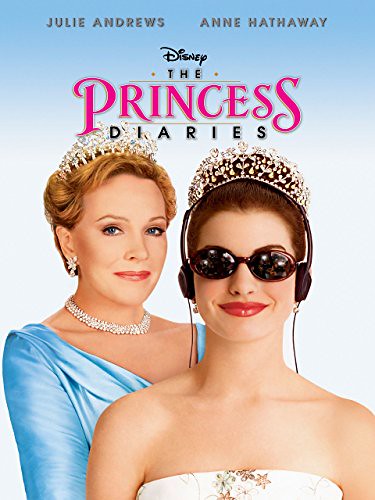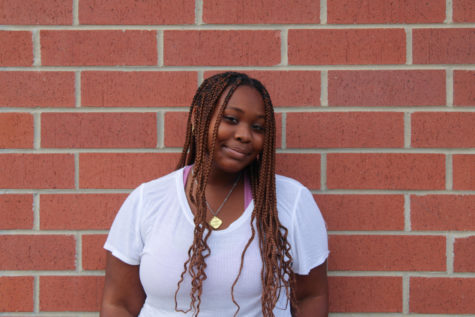Why do boring white guys always get the girl in romcoms?

Princess Diaries, like many other romantic comedies, follows the generic cliché plot of a nerdy girl becoming popular through a makeup transformation
May 6, 2020
It seems as if the same, tiresome cliché plot always happens in romantic comedies. The conventionally attractive and popular jock falls for the quiet, quirky nerd who undergoes a random glow up and finds her self-worth along the way. This classic shy to popular story has happened a countless number of times in movies like “The Princess Diaries”, “Mean Girls”, and “Heathers”. It has come to the point where no one is questioning it anymore, even though there are so many flaws within this substandard plot.
For one, the depiction of teenage characters in these genres of movies are not accurate in the slightest. The cheerleaders are always the mean girls and geeks wear wide framed glasses. These stereotypes are a lazy way of portraying high school students and high school experiences, which are much more complex and intricate given a deeper look. In these movies, it is rare to see kids actually sit down and do any school work when in reality the everyday stress of school is what occupies most teens minds.
The main aspect of these plots are the relationships and the social climbing. However, many high school flirtations are not as dramatic and romcom romances are over exaggerated, centering around gossiping, rumors, and backstabbing. The idea of a social hierarchy in high school is also incredibly absurd seeing as how current students are more concerned with their future and grades than peaking in high school.
Secondly, the majority of these movies are a huge blow to feminism. The one-dimensional, flat and usually white guy, secures the girl with cheesy sentiments and half-baked apologies. What is worse, he beats out a genuine guy who everyone, except the main character, can see is better for her in every aspect.
Take the latest Netflix romcom, “To All the Boys PS. I Still Love You.” for example. The main character gets together with your average Joe in an attempt to make another girl jealous. It sounds ridiculous because it is, and what is crazier is the fact that they stayed together and developed “real feelings” for each other after their ruse was over and done with.
Not only is this plot unrealistic but also tacky and shallow. Their entire relationship was based on lies, and they stay together even though someone a million times better comes along. This does not set a good example for high school students, the target audience of these types of movies. It leads them to believe that they should stay with the person they have been with forever, despite the clear flaws in the relationship.
It is also extremely unhealthy for teenagers to base their relationship off of unrealistic movie characters. Junior Max Leder said, “Romantic comedies can be funny but a lot of them are crappy, and would never actually happen.” Clearly, it is difficult to identify with these characters or find these scenarios occurring in real life.
Pre-teens who are preparing to enter high school might believe that these scenarios are exactly what happens in high school. They may base their personality and behavior on what they see in these far-fetched scenes. Their priorities become misaligned and they are disillusioned with this fantastical, exciting vision of high school.
As well as lacking a substantial plot, viewers constantly see the same tired characters prevailing. The cast and characters lack diversity in race, ethnicity, sexual preference, body type, and many other factors that teenagers need to see represented in the movies they watch. Actors who are cast to play high school teenagers are usually in their twenties and sometimes way past that like Regina George in Mean Girls played by Rachel McAdams who was 25 at the time. They already look more mature naturally, and have pounds of makeup to hide any facial imperfections.
When impressionable teenagers watch movies like this, it may show them unrealistic standards that they then feel they must achieve to have a normal high school experience. This is detrimental for teenagers’ mental health and may even lead to negative effects for them in the future.
However, if teenagers view romantic comedies as purely comedic, and not something to base their life and relationships on, they are practically harmless. It all depends on what angle you view it from. These movies can be something simple and sappy to watch with your friends for movie night, but it is still important to keep in mind that they are not the reality of a normal teenage life.


